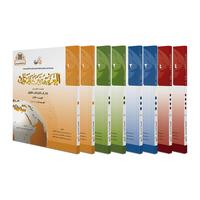١٫٥٫٣٩ - الطعام والشراب - لدينا ضيوف
nourriture||nous avons|invités
The food|and drinks|We have|Guests
A comida|e bebida|Temos|Convidados
||Wir haben|Gäste
||Bizim var|Misafirlerimiz var
||私たちには|
|y la bebida|tenemos|invitados
1.5.39 – Essen und Trinken – Wir haben Gäste
1.5.39 - Φαγητό και ποτό - Έχουμε καλεσμένους
1.5.39 - Food and Drink - We have guests
1.5.39 - Comida y bebida - Tenemos invitados
1.5.39 - Nourriture et boissons - Nous avons des invités
1.5.39 - Makanan dan minuman - Ada tamu
1.5.39 - Cibi e bevande - Abbiamo ospiti
1.5.39 - 食べ物と飲み物 - ゲストがいます
1.5.39 - Eten en drinken - We hebben gasten
1.5.39 - Mat og drikke - Vi har gjester
1.5.39 - Jedzenie i picie - Mamy gości
1.5.39 - Comida e Bebida - Temos convidados
1.5.39 - Еда и напитки - У нас гости
1.5.39 - Mat och dryck - Vi har gäster
1.5.39 - Yiyecek ve içecek - Misafirlerimiz var
1.5.39 - 食物和饮料 - 我们有客人
1.5.39 - 食物和饮料 - 我们有客人
1.5.39 - 食物和飲料 - 我們有客人
الزوج:السلام عليكم.
mari||
The husband|Peace be upon|be upon you
Der Ehemann: Hallo.|Frieden|euch
Koca: Selamünaleyküm.|selam|
丈夫||
|paz|a ustedes
Ehemann: Friede sei mit dir.
Husband: Peace be upon you.
Epoux : Bonjour.
Suami: Assalamu'alaikum.
Ektemannen: Fred være med deg.
Maken: Frid vare med dig.
Kocası: Selamün aleyküm.
丈夫:愿你平安。
الزوجة: وعليكم السلام.
la femme||
The wife|And upon you|Peace be upon
Die Ehefrau|und auf euch|Frieden
Eş||
妻子||
|y sobre ustedes|
Frau: Friede sei mit dir.
Wife: Peace be upon you.
Épouse : Bonjour à vous aussi.
Istri : Assalamu'alaikum.
Karısı: Selamünaleyküm.
妻子:愿你平安。
الزوج: أنا جوعان جدا.
||très faim|
The husband|I am|very hungry|very
||Com fome|
Ehemann|ich|sehr hungrig|sehr
||Çok açım.|
||饿|
||głodny|
||lapar|
esposo||hambriento|muy
Ehemann: Ich habe großen Hunger.
Husband: I am very hungry.
Epoux : J'ai très faim.
Suami: Saya sangat lapar.
Maken: Jag är väldigt hungrig.
Koca: Çok açım.
丈夫:我很饿。
الزوجة: الغداء على المائدة.
|déjeuner||la table
The wife|The lunch|on|the table
|o almoço|na mesa|a mesa
|Das Mittagessen|auf|der Esstisch
|Öğle yemeği|üzerinde|sofra
|||桌子
|lunch|on|stole
|almuerzo|en|mesa
Frau: Das Mittagessen steht auf dem Tisch.
Wife: Lunch is on the table.
Épouse : Le déjeuner est sur la table.
Istri: Makan siang sudah tersedia.
Isteri: Makan tengahari ada atas meja.
Hustru: Lunch står på bordet.
Karısı: Öğle yemeği masada.
妻子:午饭已经在桌上了。
الزوج: ما هذا!؟ سمك ولحم ودجاج وأرز وسلطة وفاكهة!
|||poisson|and meat|et poulet|riz|salade|et fruits
the husband|What|this|Fish|Meat|and chicken|and rice|and salad|And fruit
||isto|Peixe|Carne|Frango|e arroz|Salada|Frutas
||das|Fisch|Fleisch|Huhn|und Reis|Salat|Obst
|||Balık|et|tavuk|pirinç|salata|Meyve
|||鱼|肉|鸡肉|米饭|沙拉|水果
|qué|esto|pescado|y carne||y arroz|y ensalada|
|Co|tożsamość rzeczy||i mięso|i kurczak|ryż|and salad|owoce
Ehemann: Was ist das!? Fisch, Fleisch, Hühnchen, Reis, Salat und Obst!
Husband: What is this!? Fish, meat, chicken, rice, salad and fruit!
Mari : Qu'est-ce que c'est !? Du poisson, de la viande, du poulet, du riz, une salade et des fruits !
Suami: Apa ini!? Ikan, daging, ayam, nasi, salad, dan buah!
Kocası: Bu ne!? Balık, et, tavuk, pilav, salata ve meyve!
老公:这是什么!?鱼、肉、鸡肉、米饭、沙拉和水果!
هذا كثير جدا.
This is too much.|That's too much.|very
||erg
|Isso é muito.|muito
|viel|sehr viel
|Bu çok fazla.|
|bardzo dużo|
esto|muy|muy
das ist zu viel.
This is too much.
C'est vraiment trop.
Detta är för mycket.
Bu çok fazla.
这太多了。
الزوجة: لا تأكل … لا تأكل.
||ne mange pas||
The wife|"Don't"|"Don't eat"|No|"Don't eat"
||não coma||não coma
die Frau||isst|nein|isst
||yeme||
||吃||
||come||
|nie|jedz||
Frau: Iss nicht... iss nicht.
Wife: Don't eat...don't eat.
L'épouse : Ne mange pas... Ne mange pas.
Istri: Jangan makan...jangan makan.
Isteri: Jangan makan...jangan makan.
Hustru: Ät inte...ät inte.
Karısı: Yeme... yeme.
妻子:不吃……不吃。
اجلس.
assieds-toi
Sit down.
Sente-se.
Setz dich.
Otur.
坐
siéntate
Usiądź.
Sitzen.
Sit.
Assieds-toi.
Duduk.
Sitta.
Oturmak.
坐。
الزوج: لماذا؟ أنا جوعان.
|||j'ai faim
The husband|Why|I am|hungry
|Por quê?|Eu estou|Com fome
|warum|I|hungrig
|Neden||Aç
|为什么||
|why||
|¿Por qué||hambriento
Ehemann: Warum? Ich habe Hunger.
Husband: Why? I am hungry.
Le mari : Pourquoi ? J'ai faim.
Suami : Kenapa? Saya lapar.
Maken: Varför? Jag är hungrig.
Kocası: Neden? Ben açım.
丈夫:为什么?我饿了。
الزوجة: لدينا ضيوف.
||des invités
The wife|we have|guests
|Temos|Convidados
|wir haben|Gäste
|Bizim var|Misafirlerimiz var.
妻子|我们有|客人
|mamy|goście
|tenemos|invitados
Frau: Wir haben Gäste.
Wife: We have guests.
La femme : Nous avons des invités.
Istri: Kami punya tamu.
Hustru: Vi har gäster.
Karısı: Misafirlerimiz var.
妻子:我们有客人。
الزوج: لدينا ضيوف!
|我们有|
||Gäste
The husband|We have|guests
|tenemos|invitados
Ehemann: Wir haben Gäste!
Husband: We have guests!
Le mari : Nous avons des invités !
Suami: Kami punya tamu!
Maken: Vi har gäster!
Kocası: Misafirlerimiz var!
老公:有客人了!
من؟!
Who?
Quem?!
von
Kim?
谁
from
¿de
aus?!
from?!
Qui ?!
från?!
itibaren?!
从?!
الزوجة: والدي ووالدتي وأخي.
|mon père|ma mère|et mon frère
The wife|My father|my mother|And my brother
|Meu pai||e meu irmão
|Mein Vater|meine Mutter|Und mein Bruder.
|Babam|Annem|ve kardeşim
|我的父亲|我妈妈|我的兄弟
||y mi madre|y mi hermano
|my parents|matka|i brat
Ehefrau: Mein Vater, meine Mutter und mein Bruder.
Wife: My father, mother and brother.
Épouse : Mon père, ma mère et mon frère.
Istri: Ayah saya, ibu saya, dan saudara laki-laki saya.
Karısı: Babam, annem ve erkek kardeşim.
妻子:我的父亲、母亲和弟弟。
الزوج: أين الضيوف؟
||les invités
The husband|Where are|the guests
|Onde estão|
|wo|die Gäste
||Misafirler nerede?
||客人
|Gdzie|goście
|dónde|los invitados
Ehemann: Wo sind die Gäste?
Husband: Where are the guests?
Époux : Où sont les invités ?
Suami: Dimana tamunya?
Maken: Var är gästerna?
Kocası: Misafirler nerede?
丈夫:客人呢?
الزوجة: في غرفة الجلوس؟
|||salon
The wife|in the|living room|living room
|na|sala de estar|sala de estar
|||Sitzzimmer
||Oda|Oturma odası
|在||
||pokój|sitting
|en|sala|sala de estar
Frau: Im Wohnzimmer?
Wife: In the living room?
Épouse : Dans le salon ?
Istri: Di ruang tamu?
Kadın: Oturma odasında mı?
妻子:在客厅?

